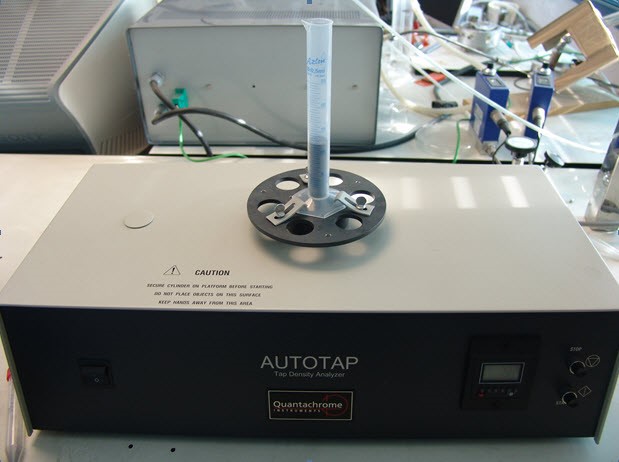U8-E06. Chemical banks for micro/nanotechnologies
Chemical banks for micro/nanotechnologies.
Chemical banks for micro/nanotechnologies.
CVD nitride and oxide passivation equipment.
Turbiscan Lab
Description: Turbiscan is used to detect at an early stage all kinds of destabilisation such as coalescence, flocculation, creaming, sedimentation, etc… Various products such as emulsions, suspensions or foams can be studied from low to high concentrations without any sample preparation or dilution. Stability kinetics and index are measured for an efficient sample analysis and comparison.
Applications: Stability studies
Four Glove Dispensing isolator for expermiments with highly active and cytotoxic compounds.
MicroCal VP-ITC – Malvern
Description:
Isothermal titration calorimetry (ITC) measures the binding affinity and thermodynamics between two biomolecules. When substances bond, heat is released or absorbed. Measuring this heat change in an ITC experiment allows precise determination of the binding constants (KD), stoichiometry (n), enthalpy (ΔH) and entropy (ΔS), providing a complete thermodynamic profile of the molecular interaction in a single experiment.
The MicroCal VP-ITC system is a powerful, sensitive and easy-to-use calorimeter that offers the possibility of investigating any biomolecular interaction. This rapid, convenient, label-free, and solution-based technique provides the information needed to characterize the molecular interactions of proteins, antibodies, nucleic acids, and other biomolecules.
Technical specifications:
• Cell type: Non-reactive Hastelloy
• Sample volume 2 mL
• Volume per cell: 1.4 mL
• Volume injected: 0.3 mL
• Mixing speed: user selectable
• Response time: user selectable
• Working temperature: 2º to 80º C
Applications:
• Characterization of molecular interactions of proteins, antibodies, nucleic acids and other biomolecules.
• Kinetic enzyme.
• Evaluation of the effect of molecular structural changes on binding mechanisms.
• Evaluation of biological activity.
 Autotap instrument for packed density measurements of powders.
Autotap instrument for packed density measurements of powders.
Descripción: Bulk density and powder packing tests
Each particle of a solid material has effectively the same true density regardless of size or shape, but more or less geometric space is occupied by the material according to the relative particle-particle cohesion and mechanical interference. That is, the apparent bulk densities of powdered, granular or flaked materials are highly dependent on the manner in which the particles are packed together. Furthermore, handling or vibration of particulate material causes the smaller particles to work their way into the spaces between the larger particles. The geometric space occupied by the powder decreases and its density increases; ultimately no further natural particle packing takes place without the addition of pressure and maximum particle packing is achieved. Under controlled conditions of tapping rate, tap force drop and cylinder diameter, this condition of maximum packing efficiency is highly reproducible. Tap density measurement is formalized in a number of international standards to which Autotap conform.
